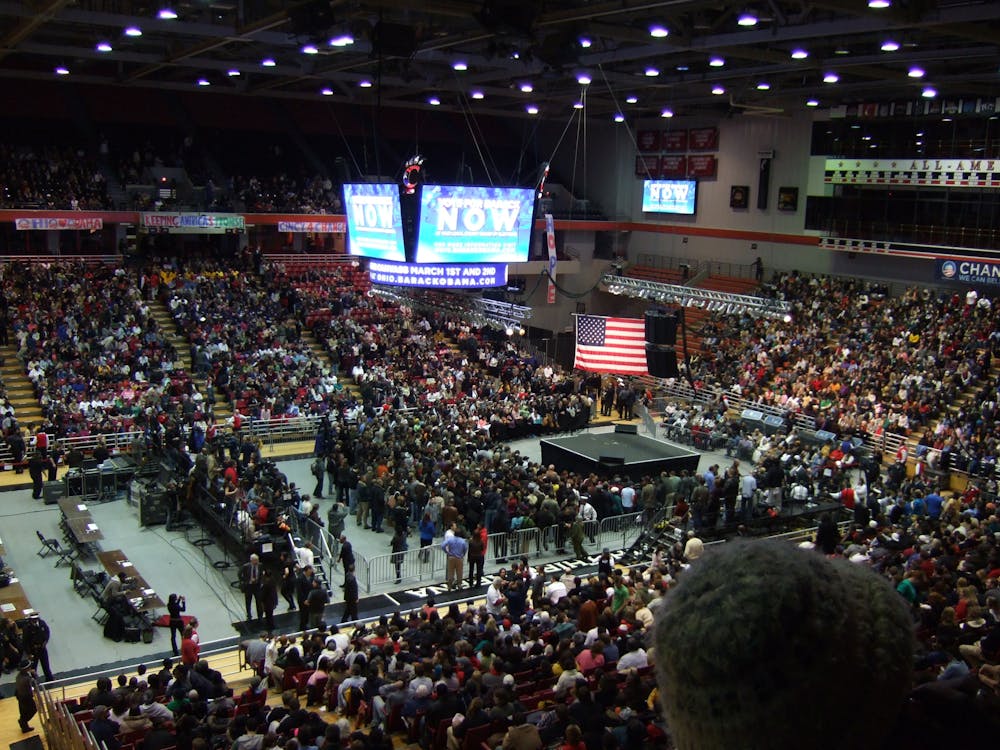By Ashley Ragone
Correspondent
In recent years, the use of popular music in political campaigns has become a growing problem, specifically for the 45th President, Donald Trump. Most songs, which are handpicked to elicit excitement from large rally crowds, are not given consent by artists for usage. This practice has raised significant controversy, both legally and ethically.
With several lawsuits now in progress and dozens of angry musicians, copyright issues have come into question. Are politicians allowed to use music for their campaigns without explicit permission? How are musicians’ rights protected under the law?
The legal backbone for music protection lies in Section 107 of the Copyright Act of 1976, also known as the “Fair Use” doctrine. This provision allows usage of copyrighted material for limited purposes of critique, commentary, or education usually without explicit permission. Music usage is examined on a case-by-case basis, focusing on four factors: the intent of the usage, the meaning behind the music, the amount of copyrighted music and how the original music may be affected.
Despite these guidelines, many politicians have felt empowered to use music of their choice to bolster campaign support, but this clearly has not worked in their favor. Trump has found himself in hot water several times for music usage that artists thought to be outside of the boundaries of “Fair Use” protection. These artists include Celine Dion, Beyonce, the White Stripes and Eddy Grant.
In an online advertisement, Trump used part of Eddy Grant’s 1982 hit “Electric Avenue” as background music during his 2020 reelection campaign. The video most notably hails Trump as a high-powered train, while Biden chugs behind slowly. Trump argued he was protected both under “Fair Use” and the First Amendment for freedom of political speech, which is not an acceptable circumvention for protection. As of Sept. 14, a judge found Trump’s legal defense for the music usage meritless, and liable for monetary damages.
In addition to Grant, many artists have taken to social media to express their distaste for the unauthorized usage of their music. As part of the Copyright Act, these artists have been warranted the right to protect against usage of their music that associates them with certain political ideology, as an alignment with one side over the other may hurt their marketability/compensation.
For example, Celine Dion took to Instagram on Aug. 10 to state that the usage of her 1997 hit “My Heart Will Go On” at a campaign rally in Montana was not authorized and she separated herself from this usage.
The estate of Isaac Hayes sued Trump for 134 counts of infringement on the copyright of his song “Hold On I’m Coming” in Aug., having used the music for several rallies over the last two years. A district judge ruled he must stop using the song, according to the BBC.
Donald Trump’s newest legal battle is against The White Stripes, a 2000s rock duo most famous for their hit “Seven Nation Army” which he used without authorization in a newer campaign video. Band members Jack and Meg White filed a copyright lawsuit, filing for unspecified damages and accusations of “flagrant misappropriation” of their song, according to Vogue. Jack White also took to Instagram, labeling Trump a “fascist.”
In response to these issues, the Artist Rights Alliance has urged national campaign committees in an open letter to seek proper authorization before using certain copyrighted material to avoid legal action.
Despite the recent nature of these issues, the copyright dilemma is not unprecedented. In 1984, during his second presidential campaign, Ronald Reagan used Bruce Springsteen’s “Born in the USA” to discuss the American Dream and build hope in the hearts of voters. Springsteen disapproved of this interpretation, as he wrote the song as a protest to the Vietnam War and mistreatment of veterans, not a patriotic anthem.
As political campaigns continue to evolve and gain momentum ahead of the November presidential election, the intersection of music and politics will increasingly spotlight the battle for artists’ rights against fair use of intellectual property. Ensuring the respectful and ethical usage of musicians’ work is essential and protects the integrity of all parties.







